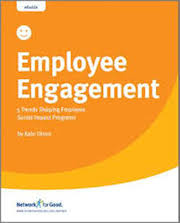Site Search
- resource provided by the Forum Network Knowledgebase.
Search Tip: Search with " " to find exact matches.
"The most populous city in New Jersey has launched a pilot program to give guaranteed income to some residents, as the pandemic has exacerbated the racial wealth gap and exposed the economic vulnerabilities millions of Americans face.
...
Prudential Financial, Inc. recently announced the recipients of its third annual Prudential Community Grants Program. Recipients were honored on April 24 during a ceremony at the company’s headquarters in Newark, New Jersey.
“Prudential’s...
The New Jersey Economic Development Authority (NJEDA) today announced the New Jersey Community Stage Relief Grant Program. The $17.5 million program will provide grants of up to $300,000 to eligible for-profit establishments that host at least two...
Summer EBT was created through legislation in December 2022 and states were given the option of launching the program in either the Summer of 2024 or 2025 or passing on the program altogether...
Provident Bank has awarded $475,000 in funding to five nonprofit organizations as part of the New Jersey Department of Community Affairs’ Neighborhood Revitalization Tax Credit Program for Fiscal Year 2022.
The nonprofit organizations...
Americares has announced a $2 million grant from Johnson & Johnson to launch a three-year program aimed at strengthening the resilience of more than 100 safety-net health clinics in areas where climate change disproportionately affects the health...

One of our longest and most successful public-private partnerships in Newark, the Summer Youth Employment Program empowers youth each year with a job, workforce training, financial literacy, and coaching and mentoring. Thanks to the support of more...
The Arts and Culture Renewal Fund (originally called the New Jersey Arts and Culture Recovery Fund) was created by a coalition of funders to raise and direct much needed support to the nonprofit arts and cultural sector statewide.
This panel...
CNJG COVID-19 Liability Waiver for in-person events.
